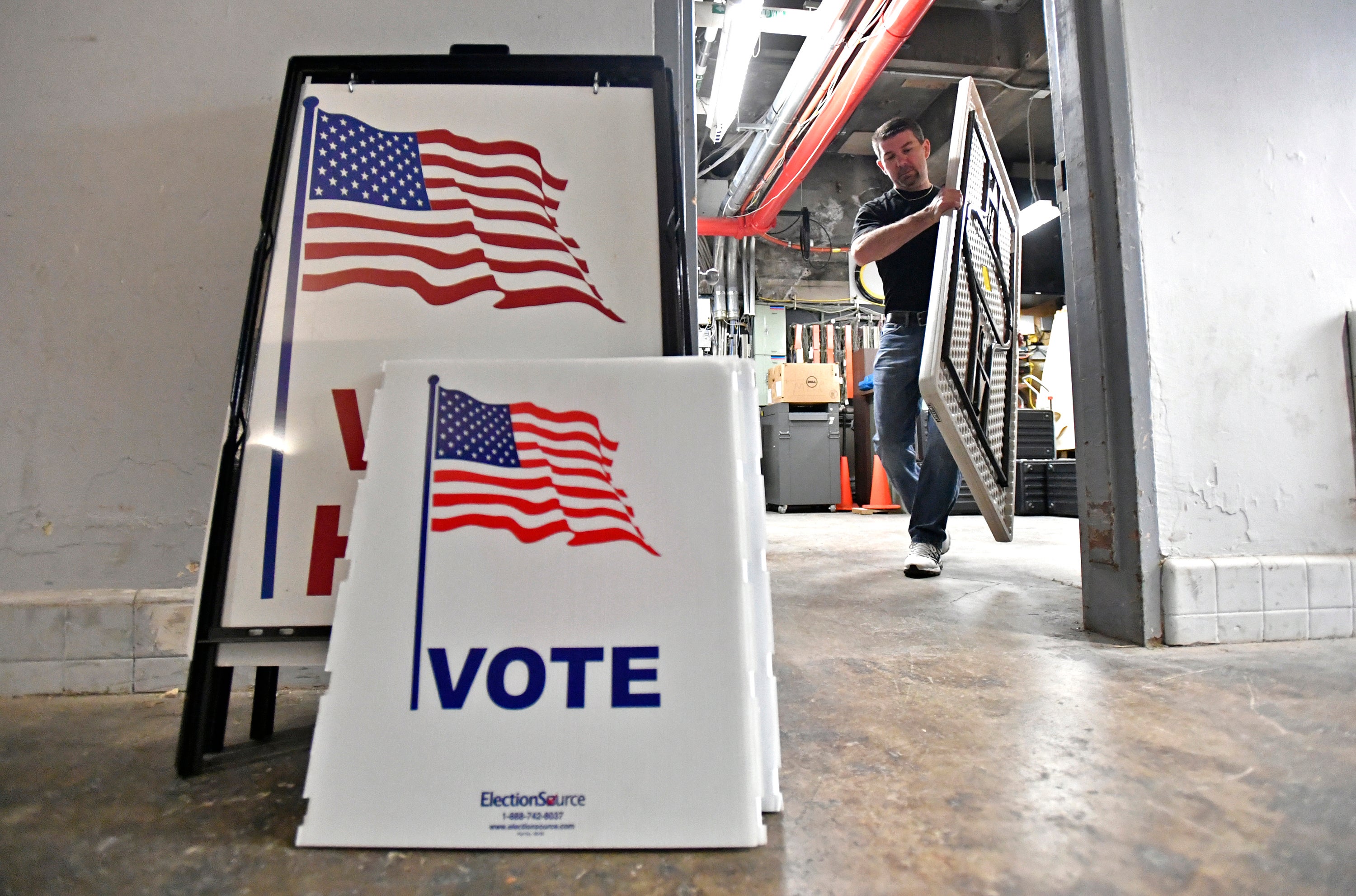Pennsylvania House proposes April 2 for presidential primary, 2 weeks later than Senate wants
Most Pennsylvania lawmakers want to move their state’s presidential primary election up from late April

Your support helps us to tell the story
From reproductive rights to climate change to Big Tech, The Independent is on the ground when the story is developing. Whether it's investigating the financials of Elon Musk's pro-Trump PAC or producing our latest documentary, 'The A Word', which shines a light on the American women fighting for reproductive rights, we know how important it is to parse out the facts from the messaging.
At such a critical moment in US history, we need reporters on the ground. Your donation allows us to keep sending journalists to speak to both sides of the story.
The Independent is trusted by Americans across the entire political spectrum. And unlike many other quality news outlets, we choose not to lock Americans out of our reporting and analysis with paywalls. We believe quality journalism should be available to everyone, paid for by those who can afford it.
Your support makes all the difference.Most Pennsylvania lawmakers want to move their state's presidential primary election up from late April, but disagreements arose in the House on Tuesday over whether to embrace a Senate-backed plan that would shift the election to mid-March.
A House committee first rejected, but later passed, a bipartisan Senate bill that seeks to hold the election on March 19. That second vote came hours after the committee approved its own bill to move the primary to April 2.
Most lawmakers are motivated to move the primary from April 23 — where it is set by state law — to avoid a conflict with the Jewish holiday of Passover and to make it earlier in the primary calendar, thereby giving voters in the battleground state more of a say in deciding presidential nominees.
“I think at its core, people recognize that Pennsylvania is frankly the center of the political universe,” said the bill’s primary sponsor, Rep. Malcolm Kenyatta, D-Philadelphia. “If you want to win a national election in the United States of America, you have to win the state of Pennsylvania.”
House Democrats supported the bill to move the date to April 2. The bill passed narrowly, 13-12, and goes to the full House for a floor vote. Democrats, on a second vote, advanced the Senate bill to the floor, with a 13-12 vote.
It gives the chamber more flexibility, and two mechanisms, to shift the date, said the committee's chairman, Rep. Scott Conklin, D-Centre.
“Things were fluid this morning as it was going through,” he said. “Some members had some reservations about the bill the way it was written."
After negotiation, he said, they passed it.
Still, the votes by the committee earlier on Tuesday raised questions about whether an agreement on a new date is possible any time soon.
House Republicans opposed both the Senate and House bills.
April 2 would be just two days after Easter next year. Lawmakers aired concerns about polling equipment being in place in churches around the Holy Week, and whether poll workers would be away for the holiday.
Republicans emphasized the impact it would have to schools' calendars, the work it would put on counties to abbreviate their own and potential changes to voters' habits as reasons to not move the primary at all, at this point.
Voters observing Passover could vote by absentee ballot, said Rep. Brad Roae, R-Crawford.
“Well, with all the different religions that we all have — Christianity, Jewish, Hindu, Buddhist — there’s so many different religions,” he said. “Probably almost every day is a holiday for somebody.”
The move could also open the state to scrutiny, said Rep. Lou Schmitt, R-Blair.
"This election, whether we change the primary date or not, will not be perfect," he said. "However, by changing the primary date, we hand a stick to these people who thrive on chaos in elections to beat our poll workers and our directors of elections over the head.”
Democrats dismissed that concern.
“I think we have very, very good folks around the Commonwealth, not only at the Department of State, but in our counties, who I have a lot of faith in their ability,” said Rep. Ben Waxman, D-Philadelphia. “You know, if they can handle 2020, they can handle this.”
Pennsylvania is a premier battleground in presidential elections, but state law sets its primary date on the fourth Tuesday in April, relatively late in the presidential primary calendar. It hasn’t hosted a competitive presidential primary since 2008, when Hillary Clinton pulled off a win to stay alive against Barack Obama, the leader in delegates and eventual winner of that year’s Democratic nomination.
The House committee's proposed date would put Pennsylvania alongside Delaware, Rhode Island and Wisconsin, as well as New York where Gov. Kathy Hochul recently signed a bill that sets that state’s presidential primary for April 2.
The March 19 date would send Pennsylvanians to the polls on the same day as Ohio, Florida, Illinois, Kansas and Arizona.
Both dates still come after primaries in other big delegate states, including California, Texas, Georgia, Michigan, North Carolina, Virginia, Massachusetts and Tennessee.
__
Brooke Schultz is a corps member for the Associated Press/Report for America Statehouse News Initiative. Report for America is a nonprofit national service program that places journalists in local newsrooms to report on undercovered issues.